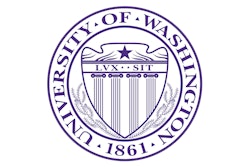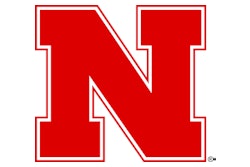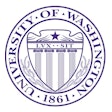Copyright 2014 The Tribune Co. Publishes The Tampa Tribune
All Rights Reserved
House Speaker Will Weatherford has said the only way public money should go to sports stadiums is through a competition, with teams fighting it out among themselves over who has the most worthy project.
This week, Sen. Jack Latvala obliged.
The Clearwater Republican on Monday filed a bill (SB 1216) that creates an evaluation process in which the Department of Economic Opportunity would competitively evaluate and rank applicants ... based on their ability to positively impact the state.
The contentious policy of using taxpayer funds to build or renovate sporting centers has been a sticky thicket in Florida and elsewhere, with some experts saying publicly financed stadium deals often don't provide the economic boost that club owners promise.
The Tampa Bay Rays have so far refused to comment on whether they will ask for state money. The open secret is that the team has thought about leaving St. Petersburg's Tropicana Field to build a new stadium in a more populous area, perhaps downtown Tampa.
A number of other proposals died last year, including one that would have funded improvements to the Miami Dolphins stadium, and another measure introduced this year would direct state sales-tax dollars toward improvements at Daytona International Speedway.
Latvala was traveling Tuesday and couldn't be reached. His bill proposes a number of factors to be considered, including:
The kinds of signature events - like Super Bowls, all-star games or racing championships - the facility might attract.
The likely boost in ticket sales and attendance the project would create.
The likelihood of attracting out-of-state visitors.
How long a team has been in the state.
Whether the new or renovated stadium could host a variety of sporting or other events.
The ranking process also would give extra points to teams that can put up half or more of the total project funds.
The same day Latvala's bill was filed, the House Economic Affairs committee released language of its own for a proposed com
mittee bill that includes similar criteria.
The House version also has a provision that Weatherford has repeated: Showing an ability to provide a positive return on the state's investment.
As opposed to funding any stadiums this year, it would be my preference that we pass a process bill that allows all the stadiums that are out there and want to have a partnership with the state - they have to prove the value of that partnership, he said earlier this month.
The state already directs up to $2 million a year in sales-tax dollars to each of eight major league sports centers: Sun Life Stadium in Miami-Dade County, EverBank Field in Jacksonville, BB&T Center in Broward County, American Airlines Arena in Miami, the Amway Center in Orlando, Tropicana Field in St. Petersburg, and Raymond James Stadium and the Forum in Tampa.
With the national economy on surer footing and Florida looking at a state budget surplus, other teams and local governments are looking to cash in while they can.
Our members have a lot of interest in their backyards, said Rep. Jimmy Patronis, R-Panama City, who chairs the House committee.
Patronis added that he hadn't seen Latvala's bill, but if it sounds the same, I think we can work with him, he said.
There are some differences.
The House limits the total pool of money to $12 million a year, and the Senate sets that amount at $13 million.
That may not seem like much help for new stadiums that can cost more than $100 million, but both bills allow for funding, in monthly installments, for up to 30 years.
The bills also would allow funding for a motorsport entertainment complex, mentioning the Daytona Speedway as an example, as well as a professional golf hall of fame and an international game fish association world center.
Coincidentally, the World Golf Hall of Fame is near St. Augustine and the International Game Fish Association Fishing Hall of Fame & Museum is in Dania Beach.
To compete for funding under either process, a local government could be the applicant, with the sports franchise being the beneficiary.
If the team applies on its own, the new stadium has to be built on public land.
To prevent a cut-and-run move in the future, both measures require state money to be repaid if a team relocates during the time it's getting funding, with the House bill tacking on a 5 percent penalty.
As of Tuesday afternoon, Latvala's proposal had not been referred to a committee for initial consideration.
The annual legislative session starts next Tuesday.
(850) 765-0807
Twitter: @jlrosicaTBO
FUNDING, Page 6
House Speaker Will Weatherford has said the only way public money should go to sports stadiums is through a competition, with teams fighting it out among themselves over who has the most worthy project.
This week, Sen. Jack Latvala obliged.
The Clearwater Republican on Monday filed a bill (SB 1216) that creates an evaluation process in which the Department of Economic Opportunity would competitively evaluate and rank applicants ... based on their ability to positively impact the state.
The contentious policy of using taxpayer funds to build or renovate sporting centers has been a sticky thicket in Florida and elsewhere, with some experts saying publicly financed stadium deals often don't provide the economic boost that club owners promise.
The Tampa Bay Rays have so far refused to comment on whether they will ask for state money. The open secret is that the team has thought about leaving St. Petersburg's Tropicana Field to build a new stadium in a more populous area, perhaps downtown Tampa.
A number of other proposals died last year, including one that would have funded improvements to the Miami Dolphins stadium, and another measure introduced this year would direct state sales-tax dollars toward improvements at Daytona International Speedway.
Latvala was traveling Tuesday and couldn't be reached. His bill proposes a number of factors to be considered, including:
The kinds of signature events - like Super Bowls, all-star games or racing championships - the facility might attract.
The likely boost in ticket sales and attendance the project would create.
The likelihood of attracting out-of-state visitors.
How long a team has been in the state.
Whether the new or renovated stadium could host a variety of sporting or other events.
The ranking process also would give extra points to teams that can put up half or more of the total project funds.
The same day Latvala's bill was filed, the House Economic Affairs committee released language of its own for a proposed com
mittee bill that includes similar criteria.
The House version also has a provision that Weatherford has repeated: Showing an ability to provide a positive return on the state's investment.
As opposed to funding any stadiums this year, it would be my preference that we pass a process bill that allows all the stadiums that are out there and want to have a partnership with the state - they have to prove the value of that partnership, he said earlier this month.
The state already directs up to $2 million a year in sales-tax dollars to each of eight major league sports centers: Sun Life Stadium in Miami-Dade County, EverBank Field in Jacksonville, BB&T Center in Broward County, American Airlines Arena in Miami, the Amway Center in Orlando, Tropicana Field in St. Petersburg, and Raymond James Stadium and the Forum in Tampa.
With the national economy on surer footing and Florida looking at a state budget surplus, other teams and local governments are looking to cash in while they can.
Our members have a lot of interest in their backyards, said Rep. Jimmy Patronis, R-Panama City, who chairs the House committee.
Patronis added that he hadn't seen Latvala's bill, but if it sounds the same, I think we can work with him, he said.
There are some differences.
The House limits the total pool of money to $12 million a year, and the Senate sets that amount at $13 million.
That may not seem like much help for new stadiums that can cost more than $100 million, but both bills allow for funding, in monthly installments, for up to 30 years.
The bills also would allow funding for a motorsport entertainment complex, mentioning the Daytona Speedway as an example, as well as a professional golf hall of fame and an international game fish association world center.
Coincidentally, the World Golf Hall of Fame is near St. Augustine and the International Game Fish Association Fishing Hall of Fame & Museum is in Dania Beach.
To compete for funding under either process, a local government could be the applicant, with the sports franchise being the beneficiary.
If the team applies on its own, the new stadium has to be built on public land.
To prevent a cut-and-run move in the future, both measures require state money to be repaid if a team relocates during the time it's getting funding, with the House bill tacking on a 5 percent penalty.
As of Tuesday afternoon, Latvala's proposal had not been referred to a committee for initial consideration.
The annual legislative session starts next Tuesday.
(850) 765-0807
Twitter: @jlrosicaTBO
Funding
From Page 1
Terms and Conditions Privacy Policy































